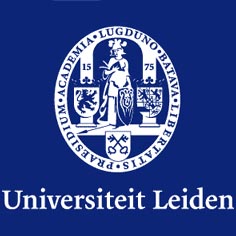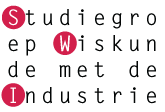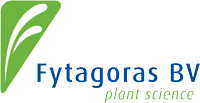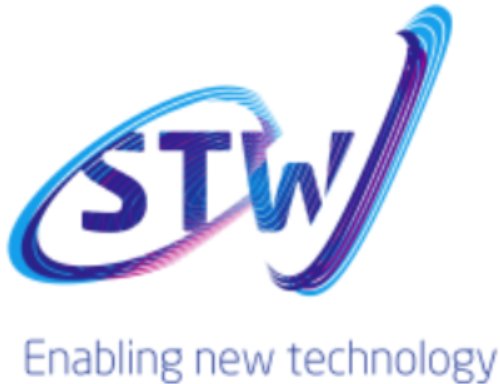 |
 |
| 90th European Study Group Mathematics with Industry Leiden, 28 January - 1 February 2013 |
 |
|
|
Home | Problems | Program | Past problems | In the media | Registration | Participants | Contact |
||
The Study Group 2013 will consider the following problems, in arbitrary order
(other problems are under consideration or can be sugested still, see below):
Descriptions of problems:
| Coffee market volatility |
 |
| Coffee is a tropical product, produced in over 50 developing countries.
It is the second most traded commodity in the world. Coffee makes an important contribution to socio-economic development and
poverty alleviation and is of exceptional importance to exporting
contries, some of which rely on coffee for over half their export
earnings. The coffee market can be very volatile even over short periods of time. Nedcoffee
is looking for better ways to access and model market volatility and
Value-at-Risk of their portfolio. Historical market data (coffee and
option prices) will be made available.
Nedcoffee is a major coffee trader with headquarters located in Amsterdam, from which green coffee from its sourcing companies in Africa and Asia is traded and controlled. >> detailed description [pdf]
|
|
| Returnable Packaging Materials in markets |  |
| Heineken
owns a vast amount of Returnable Packaging Materials (RPM: bottles,
crates and kegs) worldwide. The company expects to increase the
investment in RPMs significantly in the coming years. Their use has a
great financial impact in the needed investments and, depending on the
returnable system, on the Profit and Loss of the company. Task
for the study group is to develop a (statistical) model for estimating
the amount of RPM items in the different markets Heineken operates in.
Heineken Global Logistics is Heineken's international supply chain knowledge centre, located in Zoeterwoude, the Netherlands. One of the knowledge areas is the management of RPM. >> detailed description [pdf]
|
|
| Stress fields inside a neck |
 |
| If
a material, e.g. a metal, is stretched it can reach a point where all
of the strain is concentrated in just one area. Such a condition is
called necking, see photo. |
|
| Within the neck, the state of stress becomes fully 3-D and can no longer be represented by the state of stress in the surrounding material. The accurate but simple modeling |  |
| of this phenomenon is important for example for the simulation of collisions. The
goal of this project will be to use the insight into the 3-D state of
stress inside of a neck to simplify Bai and Wierzbicki's 3-D failure
locus into a 2-D one that accounts for the state of stress inside of
the neck better than the current ones.
>> detailed description [pdf]
|
|
| Oxygen transport in germinating seeds |
 |
| Seed
germination in most seeds depends on the availability of oxygen. Living
seeds start respiration upon imbibition and respiration accelates at
the moment the germination really commences. Single seed oxygen
consumption can be measure e.g. with a Q2 machine, at a detailed time
resolution. The interpretation of the data in terms of physical,
morphological and physiological properties of and processes within the
seed is still hard. It also hampers advances in seed treatment
possibilities. The problem consists of the development of a mathematical model for
the oxygen transport and consumption in a seed that fits to the current
biological knowledge and detailed single seed oxygen consumption
measurements. Samples of the latter will be made available.
Fytagoras is a dynamic innovative company oriented at science with much expertise in fields of sensor technology, seed technology and plant breeding. |
|
| Fundamental problems of spatial reuse in wireless networks |
 |
| The
proposed problem and its more complex variants touch upon fundamental
problems in resuse of wireless networks. For example, they relate to
the performance of distributed, stochastic gossiping algorithms, as
used for maintenance and update of network information. In the problem
discs of fixed radius are thrown onto an area such that the center
point is located at a grid point that is drawn randomly from those that
are still not covered. The
question is, how many discs need to be thrown onto the area until each
grid point is covered, or more challenging, what is the distribution
for the number of throws required.
Philips Research is a global organization that helps Philips introduce meaningful innovations that improve people's lives. >> detailed description [pdf]
|
|
| Effective water storage: Rijnstrangen |
 |
| The
Dutch dikes have been constructed such that they can deal with
exceptional water levels that occur once in 1250 year. In the last
couple of years this extreme water flow was increased from 15.000 m3/s
to 16.000 m3/s. In order to cope with this increase it was decided to
provide a larger flow bed for the rivers, instead of raising the dike
levels. The area called 'Rijnstrangen', where the Rhine enters the
Netherlands from Germany, is considered for the realisation of such an
extended flow bed. Water should enter this region only when the water
flow is above a given threshold level. The main questions (among others) is how to construct a water barrier that leads to such an inflow, how many are needed and where to locate these, to get an optimal result.
'Rijkswaterstaat' is the executive body of the Dutch Ministry of Infrastructure and Environment. >> detailed description (in Dutch) [pdf]
|
|
Suggestions for problems
Problems may come from a wide variety of subject areas, but should be amenable to mathematical modelling and analysis. Almost all industrial problems have some mathematical aspect to them, although the mathematics is not always recognisable at first. Indeed, from our own experience, some of the most successful study group problems have not been well-defined in mathematical terminology at the start of the study group.
Some ideas developed during the Study Group may require more time than one week to elaborate on. These may lead to more research after the study group itself, for which useful contacts are made between researchers in industry and at the universities to work together if needed. The meeting helps to further establish links between industry and academia and in particular to encourage the greater use of mathematical modelling in industry.
All interested are invited to contact the organising committee.

|

|
 |